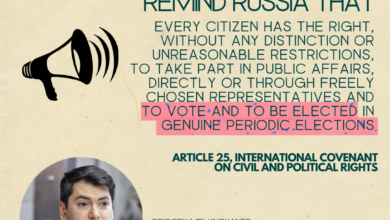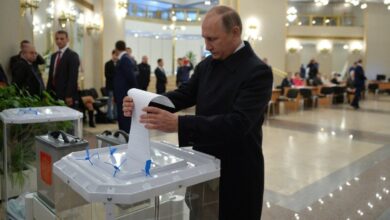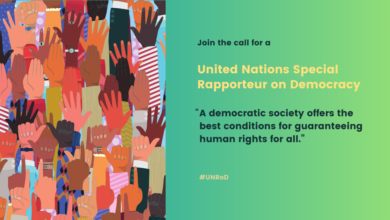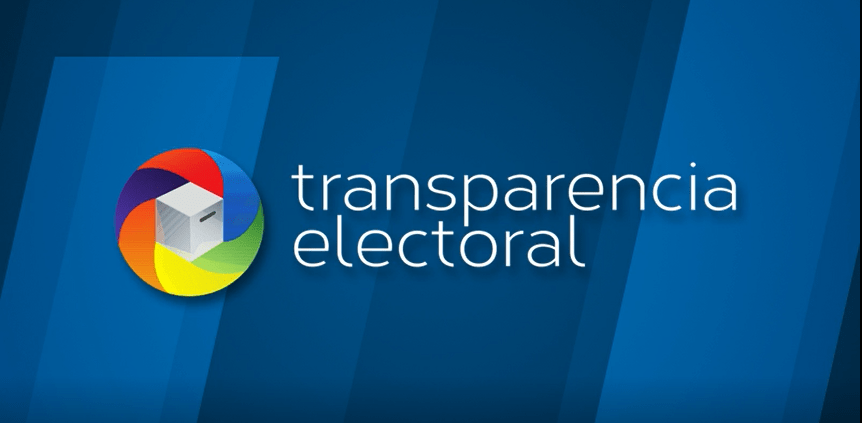Voter registration process in Venezuela left millions of people without their right to vote

It is estimated that approximately 10 million people, both in Venezuela and abroad, had to register or update their information to be able to exercise their right to vote in the upcoming presidential election, scheduled to be held on July 28th, 2024. The electoral legislation establishes that Voter Registration is governed by the following principles:
1. Public. All people can access and obtain the information contained in the voter lists, with the limitations established by law. In order to guarantee the right to privacy of each person, access to data related to residence should be limited and should only be obtained through requests from judicial or administrative authorities.
2. Continuous. It is not susceptible to interruption due to any ongoing electoral process. All people can register or update their data at any time, as well as request the rectification of data that is erroneous or affects their right to vote.
3. Efficacy. The procedures and administrative procedures to create and update voter lists must be transparent, timely, relevant and easy to understand, in order to guarantee the inclusion of all citizens.
4. Automation. The voter registration and update process will be carried out in an automated manner and will contain the registration of all citizens who, in accordance with the laws, can exercise the right to vote.
However, during the recent voter registration process in Venezuela and abroad, numerous violations of the established procedure were reported. In fact, it is possible to report at least one violation for each of the four principles that legally define voter registration.
Despite the public nature of the process, it took place in a context of heavy institutional opacity. The statements regarding the number of voters registered before the cut did not provide important information about its implementation. Changes to the fixed registration points were reported and not clarified by the National Electoral Council (CNE, by its acronym in Spanish). The requirements for registration and updating abroad were not properly published either, with them varying from diplomatic mission to the next.
Probably the most blatant violation that has most affected the right to political participation has to do with the continuous nature required by law. The CNE, which kept the registration of voters abroad paralyzed for six years (since 2018), established a brief period, from March 18th to April 16th (not including weekends or holidays), so that potential voters could register or update their data at the Embassies and consulates. This, added to the difficulties and restrictions that arose during the process itself, left millions of potential voters without the possibility of registering to vote.
As if this were not enough, the voter registration process in several countries started only after a significant delay, despite the formal mandate for it to open March 18th. According to groups of Venezuelans organized in different countries, the operation began around or on April 1st. In addition to this, the mandate of continuous days (weekends and holidays) was not fulfilled, which resulted in an extremely tight period for the registration of millions of potential voters.
The absence of a continuous voter registration process, in itself, made it very difficult to include a high number of voters that are effectively disenfranchised. Also, the process was not carried out in compliance with the principle of efficacy. Only 315 registration points were established throughout the country, although according to the opposition, not all of them became operational. To illustrate the limitations one must consider Venezuela has 335 municipalities, which means not all localities had a registration point assigned.
In 2021, during the registration days for the regional elections of that year, the CNE reported the activation of 1,000 registration points, so the total used for this process constitutes less than a third of the total of that process. In the days prior to other electoral processes, such as the 2020 parliamentary elections, some 551 points were available, while 531 were installed for the 2018 presidential elections. For the 2015 parliamentary elections, the last internationally recognized process, 1,568 registration points were made available. In summary, the 2024 registration and update process had the lowest number of registration points in a decade.
The small number of points caused difficulties for many voters, some of whom had to travel from remote areas. This was also the case for Venezuelans living abroad, who had to rush to register in a short time frame and face the refusal of the authorities in diplomatic missions who, on many occasions, chose to serve only up to 50 potential voters a day. In many cases, interviews were carried out that lengthened the registration process of a potential voter more than was strictly necessary. In places with many potential voters this resulted in long delays. In countries like Chile or Argentina, excessive slowness in the process was reported and in many cases long lines were generated.
Although the legislation gives the CNE faculties to demand certain extra requirements, in many cases the authorities did not properly inform what requirements they were going to demand from citizens, especially in the case of the registration abroad, where some reports indicated that extra documentation was requested arbitrarily.
At the external level, a single criterion was not implemented for all authorized consulates. In Colombia, for example, the temporary residence permit granted by the Colombian government was not accepted, while a valid passport or a valid identity card was required. The requirement for a valid passport, given that the Venezuelan passport is today one of the most expensive in the world, effectively disenfranchises a considerable number of voters who found themselves unable to pay for it. The continued failure of the Venezuelan State to issue said document in the face of growing demand and the reduced capacity of diplomatic missions is a contributing factor to this issue.
In addition to this, a valid ID card (cédula de identidad) can only be obtained in Venezuela, an impediment for nearly 8 million Venezuelans living abroad. It should be noted that, as it has been in the past, the validity of these documents is irrelevant when it comes to verifying the identity and carrying out the registration procedures. An expired ID may perfectly accomplish the objective of providing proof of nationality and contain all the required information, so the requirement of it not being expired cannot constitute anything other than an arbitrary criterion.
In many diplomatic missions, the absence of the material and equipment required to carry out the automatic registration process was reported, which only contributed to further hindering the process. The use of a biometric registration and identification system was one of the main factors reported that caused the delays in the process abroad.
The results of the lack of time and the problems faced by potential voters are obvious. Once the process was completed, Elvis Amoroso, president of the CNE, announced on April 17th that 604,964 new voters had been registered, while 847,999 had changed their place of residence. This represents around 14% of the total estimated Venezuelans who could have registered or updated their data.
Abroad, the problem is much more heavily perceived. In Argentina, for example, it is estimated that only 500 people out of a universe of 200,000 Venezuelan residents were able to register or update their data, despite the large crowds of potential voters who attended the Embassy. In Colombia, where 40% of the Venezuelan diaspora resides (close to 3 million people), they reported days before the closing of the process that not even 100 voters had registered.
These obstacles ultimately threaten the right to effective political participation, safeguarded by several international instruments of which Venezuela is a signatory country, such as the Universal Declaration of Human Rights, the International Covenant on Civil and Political Rights and even the Venezuelan Constitution itself, which establishes that all Venezuelans of legal age must be able to vote and gives the CNE the mandate and obligation to guarantee the principle of citizen participation.



